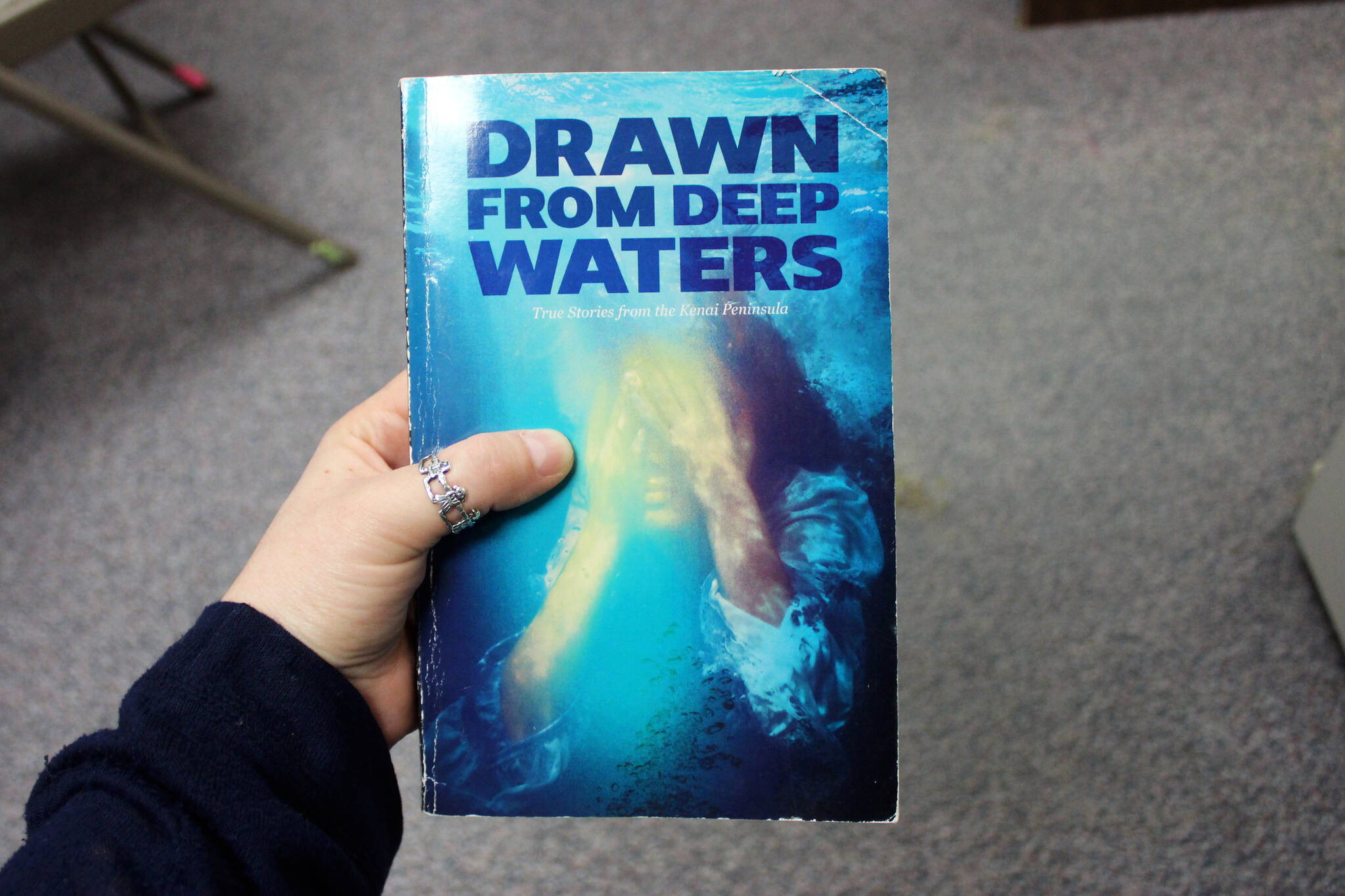I don’t always know what I’m getting into when buying books to read for this column.
Sometimes, there’s a new release that I’ve had my eye on. Other times, I browse aimlessly through the reliably crowded shelves of Alaskana at our local used bookstores. It was the latter scenario that put a copy of “Drawn from Deep Waters: True Stories from the Kenai Peninsula” in my hands.
The cover shows a woman underwater with her hands over her face, while the back teases stories of peninsula residents who have overcome addiction and abuse.
As I turned the first page, a paragraph under the copyright and publishing information caught my attention.
“This book was written for the express purpose of conveying the love and mercy of Jesus Christ,” it says. “The statements in this book are substantially true; however, names and minor details have been changed to protect people and situations from accusation or incrimination.”
I paused.
At this stage in my life, I think “nontheistic,” may be the most accurate way to sum up my thoughts about the universe. I was raised in an Irish Catholic family, though, and am certainly no stranger to the tenets and hallmarks of Christianity.
I also recently returned from an extended trip in Europe, which at every turn impressed on me the relationship between Christianity and the evolution of the Western World. I spent more time in churches than I have in years and passed hours comparing and contrasting artistic depictions of biblical stories and wondering about their generational appeal.
It was maybe for this reason that I found myself in a mindset to forge ahead with “Drawn from Deep Waters,” despite knowing that the book was coming at me with a specific agenda. Why do people believe in God? What would make someone abruptly convert? I was willing to read a few examples.
The six chapters each tell the story of how a member of the Kalifonsky Christian Center, located on Kalifornsky Beach Road, found Jesus. The stories address themes like incest, substance use, spiritual redemption and healing and all end in a similar way.
The vulnerability and courage need to share the types of stories in “Drawn from Deep Waters,” is certainly admirable. They’re messages to people going through similar struggles, a person reaching out and saying, “I’ve been where you are, and this is what helped me.” With intentions like that, I think it’s hard to do wrong.
Reach reporter Ashlyn O’Hara ashlyn.ohara@peninsulaclarion.com.
Off the Shelf is a bimonthly literature column written by the staff of the Peninsula Clarion.


